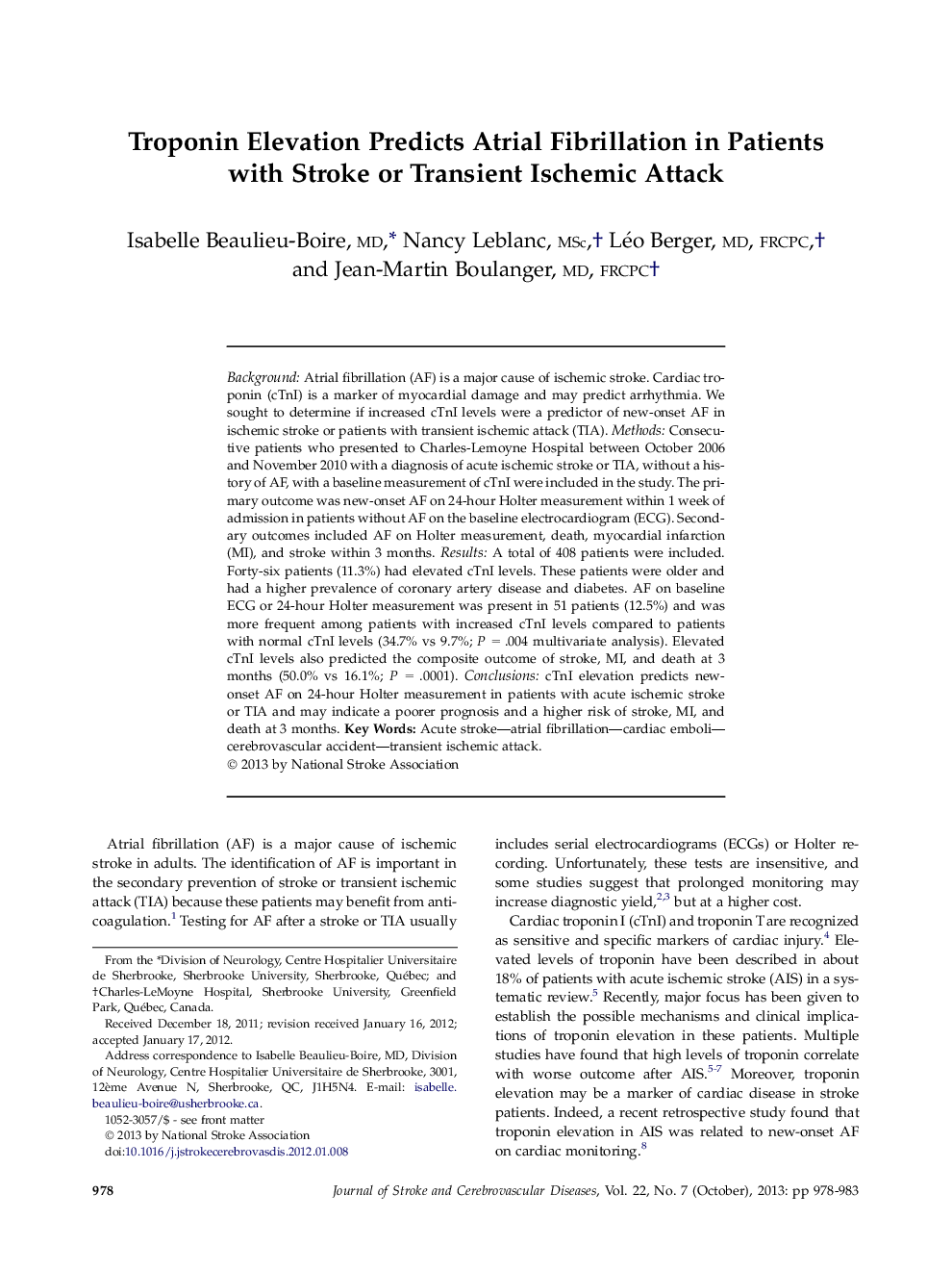| Article ID | Journal | Published Year | Pages | File Type |
|---|---|---|---|---|
| 5874409 | Journal of Stroke and Cerebrovascular Diseases | 2013 | 6 Pages |
BackgroundAtrial fibrillation (AF) is a major cause of ischemic stroke. Cardiac troponin (cTnI) is a marker of myocardial damage and may predict arrhythmia. We sought to determine if increased cTnI levels were a predictor of new-onset AF in ischemic stroke or patients with transient ischemic attack (TIA).MethodsConsecutive patients who presented to Charles-Lemoyne Hospital between October 2006 and November 2010 with a diagnosis of acute ischemic stroke or TIA, without a history of AF, with a baseline measurement of cTnI were included in the study. The primary outcome was new-onset AF on 24-hour Holter measurement within 1 week of admission in patients without AF on the baseline electrocardiogram (ECG). Secondary outcomes included AF on Holter measurement, death, myocardial infarction (MI), and stroke within 3 months.ResultsA total of 408 patients were included. Forty-six patients (11.3%) had elevated cTnI levels. These patients were older and had a higher prevalence of coronary artery disease and diabetes. AF on baseline ECG or 24-hour Holter measurement was present in 51 patients (12.5%) and was more frequent among patients with increased cTnI levels compared to patients with normal cTnI levels (34.7% vs 9.7%; P = .004 multivariate analysis). Elevated cTnI levels also predicted the composite outcome of stroke, MI, and death at 3 months (50.0% vs 16.1%; P = .0001).ConclusionscTnI elevation predicts new-onset AF on 24-hour Holter measurement in patients with acute ischemic stroke or TIA and may indicate a poorer prognosis and a higher risk of stroke, MI, and death at 3 months.
